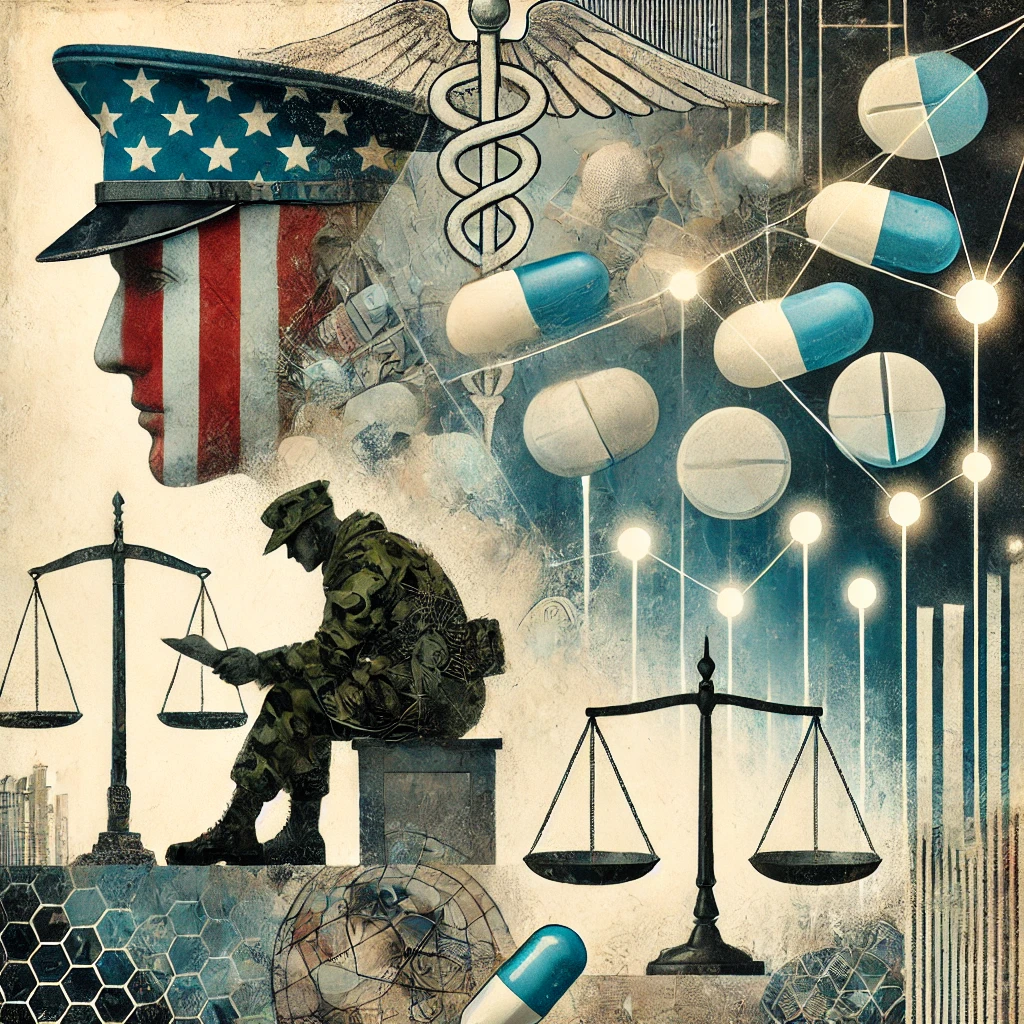
In recent years, a growing number of contentious issues surrounding psychiatric drug use, societal trends, and ideological debates have come to the forefront of public discourse. Organizations like AbleChild and media outlets such as The Gateway Pundit have spotlighted critical concerns ranging from mental health treatments to the influence of progressive ideologies. These debates raise important questions about transparency, accountability, and the balance between individual rights and societal values.
Surge in Military Suicides and Psychiatric Drug Use
A Department of Defense (DoD) report has revealed an alarming increase in suicides among active-duty military personnel, with rates reaching unprecedented highs. Shockingly, 42% of these suicides involved individuals with diagnosed mental health conditions. Despite significant investment in mental health programs, the DoD has withheld detailed information on psychiatric drug treatments. Investigations suggest a substantial rise in prescriptions for psychiatric medications, prompting concerns about a potential link to escalating suicide rates.
Critics argue that this lack of transparency hinders efforts to address the root causes of the crisis, urging the DoD to provide clearer data on the use of such medications and their effects on mental health outcomes.
Mismanagement of Psychotropic Drugs in State Care
A troubling audit conducted by the Massachusetts Office of the State Auditor has uncovered widespread mismanagement of psychotropic medication administration within the Department of Children and Families (DCF). According to the findings, 22% of children in protective custody were prescribed at least one psychotropic drug. Alarmingly, the audit revealed significant lapses, including failures to secure court approvals, maintain accurate medical records, and ensure children received recommended psychosocial services.
These oversights have fueled concerns about overprescription and inadequate oversight, particularly among vulnerable populations. Experts emphasize the need for rigorous checks and balances to prevent harm and promote evidence-based practices in mental health care.
Call for Investigation into Psychiatric Drugs and Mass Shootings
AbleChild has called for a comprehensive investigation into the potential link between psychiatric drugs and mass shootings, a controversial yet pressing issue. This appeal coincides with the nomination of Robert F. Kennedy Jr. as Secretary of Health and Human Services. Kennedy has expressed interest in exploring the role of selective serotonin reuptake inhibitors (SSRIs) and their potential connection to violent incidents.
Advocates argue that such an investigation is critical for ensuring accountability and validating the scientific underpinnings of mental health treatments. Opponents, however, caution against oversimplification, emphasizing the multifaceted nature of violent behaviors.
Risks of Psychiatric Drug Cocktails
Research highlights the growing prevalence of polypharmacy—the prescription of multiple psychiatric drugs simultaneously—among children. Despite limited understanding of the combined effects of these medications, many young patients are prescribed potentially dangerous drug combinations, leading to severe adverse effects.
Experts advocate for informed consent and more cautious prescribing practices, underscoring the lack of robust scientific evidence supporting the safety and efficacy of such drug regimens.
Unaddressed Evidence in High-Profile Investigations
AbleChild has also criticized the Congressional Task Force investigating the attempted assassination of Donald J. Trump for neglecting crucial evidence, including reports of a white van containing explosives near the incident site. The organization has called for a thorough examination of all potential leads and greater transparency to uphold public trust.
The "Woke Mind Virus" Debate
Parallel to these issues, the cultural phenomenon of the "woke mind virus" has sparked heated debates across ideological lines. Popularized by figures like Elon Musk, the term critiques progressive ideologies perceived as overly politically correct or censorious. Musk notably discussed this concept during an October 2024 interview with Tucker Carlson, warning of its potential to suppress free speech and rational discourse.
Media outlets like The Gateway Pundit have frequently spotlighted examples of the "woke mind virus" in action. One notable case involves the cancellation of comedian Biddy O’Loughlin’s shows in Adelaide, attributed to complaints about her controversial routines. Critics of the term argue that it pathologizes activism and undermines legitimate social justice efforts.
This debate reflects broader cultural tensions, with advocates of progressive change clashing with defenders of traditional values. Bridging these divides requires open and respectful dialogue to foster understanding and collaboration.
Conclusion: A Call for Transparency, Accountability, and Balanced Dialogue
These intersecting issues—ranging from the administration of psychiatric drugs to ideological debates about societal values—underscore the importance of informed consent, transparency, and evidence-based practices. Organizations like AbleChild and media outlets like The Gateway Pundit continue to amplify these concerns, advocating for policies that prioritize individual rights and accountability.
As society grapples with these challenges, fostering a culture of openness, respect, and critical inquiry will be essential to addressing the complexities of mental health, societal change, and cultural divides.



